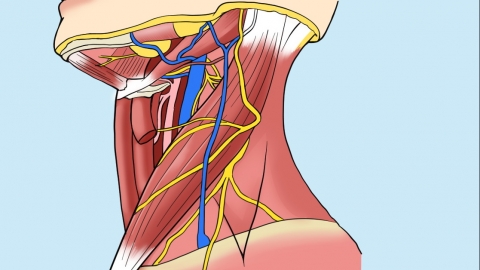What should I do if my throat is burned and painful?
Generally speaking, the throat refers to the pharynx. If the pharynx is burned and causes pain, it can be relieved by removing the heat source, applying cold compresses locally, adjusting diet, using topical medications, and taking oral medications. If discomfort persists, timely medical attention is recommended. Detailed explanations are as follows:

1. Remove the Heat Source
If the pharynx is burned by consuming excessively hot food or beverages, immediately stop contact with the hot substance to avoid further exposure to the causative factor.
2. Apply Local Cold Compress
If burning sensation and pain occur after the pharynx is burned, symptoms can be alleviated by holding ice cubes or cold fruits in the mouth to cool the pharyngeal mucosa, reduce temperature, promote vasoconstriction, decrease exudation of tissue fluid, and relieve swelling and pain.
3. Adjust Diet
When the pharynx is burned, the mucosa sustains damage. During this period, it is important to maintain a reasonable diet, preferably light and easily digestible foods such as millet porridge, milk, and rice paste, to minimize irritation to the pharyngeal mucosa and promote recovery.
4. Topical Medications
If the pain in the throat is severe, it is recommended to use medications such as compound borax mouthwash, Guilin Watermelon Frost, or compound chlorhexidine mouthwash as directed by a physician for local treatment, to relieve throat pain and promote wound healing.
5. Oral Medications
For patients who do not respond well to the above treatments, anti-inflammatory antibiotics should be promptly administered under a doctor's guidance to reduce inflammatory edema, such as amoxicillin capsules, cefixime capsules, and roxithromycin dispersible tablets.
In addition, patients should also pay attention to daily care, maintain pharyngeal hygiene to prevent bacterial infection, and schedule regular follow-ups to monitor recovery and adjust treatment plans accordingly.




